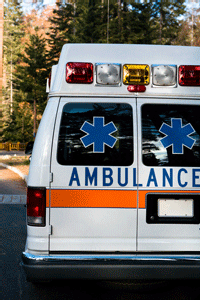This article is part of the #STCPreventionMatters campaign from the University of Maryland Medical Center. For more information about the campaign and the Center for Injury Prevention and Policy, visit www.umm.edu/PreventionMatters
It only takes the blink of an eye for someone’s life to change. Each year in the United States, emergency rooms treat 41 million trauma patients, and hospitals care for 5.7 million critically ill or seriously injured people. Whether it is an illness, injury, or witnessed event, any tragic event can be devastating. No two people will experience trauma the exact same way. However, what is common is the fact that recovery can be hard work. To survive trauma, a person’s body must heal, but survival also means the mind must heal.
Healing is different for everyone. No two people will heal in the same way or in the same amount of time, and it may not always feel like progress. Recovery will have good days and bad days, as well as successes and setbacks. There may be a time when an injury or illness is no longer obvious, but the mind and spirit may still need time to heal. Stress, grief, pain, anxiety, depression, uncertainly and sleeping problems can be part of the healing process. These are normal reactions to trauma, and are treatable. Health professionals and personal support systems play a big role in overcoming these challenges.
Trauma can affect more than just the person who is ill or injured, and often does. Family members, close friends and even people who witness a tragic event might also experience a wide range of feelings. These reactions are often comparable to the experiences of the person who was hurt. It is important for anyone who is struggling with the consequences of trauma to get proper care in order to heal. Asking for help, and understanding strengths, as well as challenges and needs is an important step toward recovery. Talking with a doctor or therapist is key to rebuilding a healthy body, mind and spirit. Routine visits with health care professionals have proven benefits, but there is something more powerful for healing than even the strongest medicine. One of the greatest gifts anyone can give a person who has survived a trauma is patience and understanding. Healing takes time – there is no way to rush through it.
Surviving trauma can be a long, hard journey, so it is important to celebrate successes along the way. Some achievements will be big and obvious, and others will be small and vague. Regardless, it is important to appreciate every step forward. The R Adams Cowley Shock Trauma Center, the American Trauma Society, and the Trauma Survivors Network invites every survivor to honor their recovery journey. To bring survivors, family members and friends together in celebration, the nation dedicates one special day each year to trauma survivors. National Trauma Survivors Day is May 16, 2018. To learn more about fun and easy ways every survivor can celebrate, visit: www.traumasurvivorsnetwork.org/pages/national-trauma-survivors-day.
Frannie Grissom, BSN, RN has been a nurse at the R Adams Cowley Shock Trauma Center since 1994. She is the hospital’s Program Coordinator for the Trauma Survivors Network.
